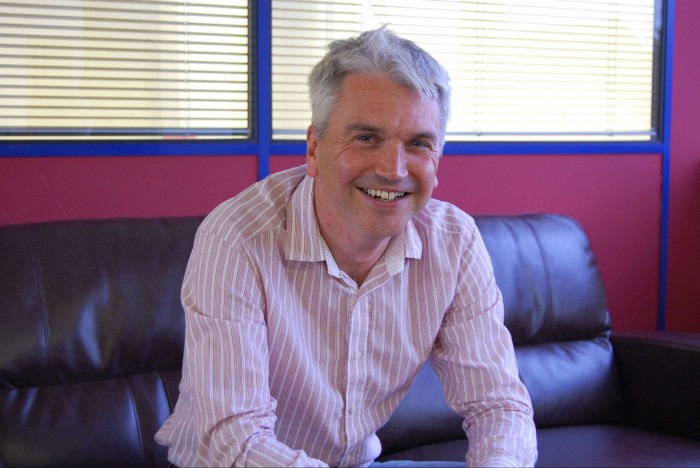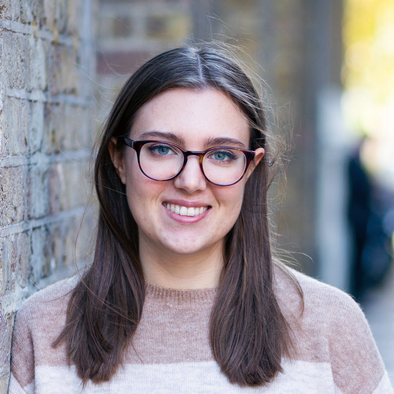EMBA Electives in behavioral science at Warwick Business School turned out to be the key to Paul Ranson's Airbnb success. Now he plans to help others in the hospitality sector
Behavioral science: it’s the stuff of science, not business, right? While the theories may sound fantastical, one business school in the UK is convinced of the useful application of the subject.In 2010, set up the Behavioral Science Group, a society intending to push the boundaries of behavioral science, especially in the ways that the theory can be applied to business. Currently, it’s one of the largest departments of its kind in Europe.
While psychology can often be found on MBA courses within courses on organizational behavior, behavioral science—a branch of psychology that specifically focuses on human behavior, and interactions between humans—is relatively new to business schools. But it has some crucial applications—behavioral science can be used to influence decision-making and judgment using ‘nudge theory’, a way of using positive reinforcement and suggestions to influence group or individual behavior.
Warwick teaches behavioral science on its Executive MBA, something that recent graduate Paul Ranson admits he was skeptical about at first. “If you examine the Paul Ranson that entered WBS in 2016, I think I would have been a bit patronizing about some of the words that are coming out of my mouth now!” he laughs.
Paul is a seasoned entrepreneur and enrolled on the EMBA after successfully selling one of his businesses. “Initially, I thought I’d do an EMBA to confirm what I’d been doing in business for the previous 30 years,” he explains. “In the end, the course has kind of changed me as a person.”
From game design to Airbnb
Paul discovered a fascination for behavioral science shortly after enrolling onto the EMBA at Warwick, a school that appealed to him since it was his “local.”
“I imagine I would have gone down a different route if I’d gone to another business school,” he admits. “But in the past, I’ve been fascinated by the way that what appears to be common sense can be contradicted, and how what people say and what people do tend to be two different things.”
Paul’s career began in video game design in the 1980s and was one of the first executives to be employed by Codemasters, now an internationally-renowned game developer.
Since then he’s been a part of a number of successful game developers but changed his business tack in 2015 by buying and renovating properties in the Warwickshire area to rent out on Airbnb, using the profits as a way of funding his .
It was his experience in the hospitality industry that led him to pursue behavioral science more academically.
“My initial approach to Airbnbs that I owned was that I presented them as if they were boutique hotels,” Paul explains. “But with a couple of them I do co-hosting, so I actually take my friend’s houses and, when they’re away on business or on holiday, I hire them out on the platform.”
Paul discovered, much to his surprise, that guests were more likely to leave his friend’s houses clean than his own houses—but why?
“I set to doing statistical analysis and found that effectively double the number of people left the house tidy in a residence one, with their social paraphernalia like family photos, than the ones in my specifically designed hotel experiences,” Paul adds.
“If I could make my houses look like they’d been lived in by humans, it could save both time and the energy levels.”
A breakthrough
Paul spent a year investigating this link between ‘social’ houses and guest cleanliness for his EMBA dissertation, guided by his supervisor Dr. Chengwei Lui, a member of the Behavioral Science Group at WBS.
Ultimately, Paul is hoping his discovery could help more Airbnb renters with their own small businesses.
“I feel giddy in that I feel like I’ve discovered something!” laughs Paul. “At this point, I’m writing a book that aims to be the intersection between what I’ve been taught on the EMBA and what I’m calling my ‘wisdom’ from Airbnb.”
Paul also believes that the insights he’s gained from behavioral science on the could help more people, if only they knew about the subject.
“A lot of the theories, when you say them to people it’s very polar—they’ll either tell you ‘that’s obvious’ or alternatively, ‘that’s nonsense’,” Paul admits. “But behavioral scientists are arguing that as we move more into the 21st century, all businesses will have to consider the behaviors of their customers to differentiate themselves.”
“From my point of view, the EMBA has been inspirational,” he adds. “It’s brought a passion to the surface that, entering the MBA, I never thought I would have achieved.”
Student Reviews
BSc Management with Marketing
I loved Warwick business school.
The staff is supportive, my academic tutor was key in my development throughout the 3 years and you have to meet with her/him every term. Most professors are helpful and would happily offer support if needed. You also have office hours and can contact professors by email and through the forum.
In general, WBS instills in you the willingness to learn and the resilience needed for you for whatever career you choose.
Very international community which broadens your horizon and makes you more open minded and self aware. You will most certainly make friends and memories for life. I recommend that you get outside of your comfort zone and try new activities with your friends!
WBS also has a great reputation and offers careers opportunities, and careers support throughout the degree.
There is the opportunity to do a year abroad to further develop on a personal level. I wasn’t able to do this due to Covid but I would have loved to do it during normal circumstances! Would definitely recommend this.
Although Warwick is not a city university, the campus vibe has a lot of advantages, especially at an undergraduate level. You are always around familiar faces, and in a student environment. Moreover, Birmingham is only 20 mins away from Leamington spa and London is only one hour away! Perfect for a day trip or a weekend getaway!
Life at Warwick Business School
Pursuing my master's degree at WBS has been a game-changer in my life. With high-quality education, interaction with students from across the world, amazing campus life and much more. I was able to learn about business, finance, project management and strategy all in one course: MSc in Management at WBS. Besides the top-notch education from the best professors, I also enjoyed being a part of fun societies and participating in fun activities such as scavenger hunts and so much more.
The school also organises many company visits and interactions which help students get a head start at finding a job. As my course came to an end, I also have a good full-time job placement in my hands.
Overall, my experience at WBS was a great one.
Outstanding
The Warwick Business School was like a dream come to life for me. The University ranking speaks for itself, from top-tier facilities to some of the best professors I had to honour to study with I fell in love with my course. Interactions with people from all over the world gave me a newfound confidence in myself.
Career prospects after graduating are endless due to the contacts of the universities and the success rate for previous students, it does open a lot of doors for students in various career fields. The campus life is quite good as well with a lot of student groups and clubs, and extra circular activities to engage students at all times. Loved my experience.
A good business school
It is a very cutting-edge, career-oriented business school, all courses are very practical, and the college does a very good job of career service. From the hardware and facilities to the staff, the student experience is at the core of the school and student satisfaction is taken very seriously. I understand that many universities in the UK are relatively traditional and can occasionally be rigid in terms of rules and regulations, and although WBS has a relatively short history, this makes it more innovative and dynamic, which is essential for a business school. The downside is that because it is on the outskirts of Coventry, it is a long bus ride to the city centre, not to mention the difference in experience from a big city like London.
Campus
The people, campus, staff. It’s a very enjoyable environment and it’s particularly good for learning and playing sports. The people there are extremely friendly and welcoming and it’s very easy to make friends
What I Like About Warwick
I’ve personally liked my experience at Warwick so far because of the amazing people I’ve gotten to meet and how many opportunities we students are provided with to learn and grow.
Within Warwick, I’m part of the Business School, a learning haven comprised of well-structured modules and extremely helpful people
All in all, a great place to be :)
Campus Life
One thing that stood out for me was the campus life, you felt like part of a community. The social aspects of the student union and on-campus accommodation meant you can easily get together and enjoy with friends. Additionally, I felt the course provided a variety of subjects allowing me to enhance my knowledge, from Marketing to Law and Finance. Overall I would most definitely recommend this university to friends and family.
Excellence self catered
The campus is very welcoming and Modern. There are many opportunities at Warwick but it is up to the student how do they want to make the most out of it and the staff at the school will definitely helo as much as possible. The location and the ranking have been amazing.
Warwick business school
Warwick business school is one of the best universities around the globe with a solid base of economic and business studies. Moreover, students get a chance to study in a diverse and warm environment with professional stuff which tries to provide the best opportunities for career development. One of the memorable features of the university are great events which sometimes take a place in one of the landmarks of the London city, the Shard building.
BSc Management with Marketing
I loved Warwick business school.
The staff is supportive, my academic tutor was key in my development throughout the 3 years and you have to meet with her/him every term. Most professors are helpful and would happily offer support if needed. You also have office hours and can contact professors by email and through the forum.
In general, WBS instills in you the willingness to learn and the resilience needed for you for whatever career you choose.
Very international community which broadens your horizon and makes you more open minded and self aware. You will most certainly make friends and memories for life. I recommend that you get outside of your comfort zone and try new activities with your friends!
WBS also has a great reputation and offers careers opportunities, and careers support throughout the degree.
There is the opportunity to do a year abroad to further develop on a personal level. I wasn’t able to do this due to Covid but I would have loved to do it during normal circumstances! Would definitely recommend this.
Although Warwick is not a city university, the campus vibe has a lot of advantages, especially at an undergraduate level. You are always around familiar faces, and in a student environment. Moreover, Birmingham is only 20 mins away from Leamington spa and London is only one hour away! Perfect for a day trip or a weekend getaway!
Life at Warwick Business School
Pursuing my master's degree at WBS has been a game-changer in my life. With high-quality education, interaction with students from across the world, amazing campus life and much more. I was able to learn about business, finance, project management and strategy all in one course: MSc in Management at WBS. Besides the top-notch education from the best professors, I also enjoyed being a part of fun societies and participating in fun activities such as scavenger hunts and so much more.
The school also organises many company visits and interactions which help students get a head start at finding a job. As my course came to an end, I also have a good full-time job placement in my hands.
Overall, my experience at WBS was a great one.
Outstanding
The Warwick Business School was like a dream come to life for me. The University ranking speaks for itself, from top-tier facilities to some of the best professors I had to honour to study with I fell in love with my course. Interactions with people from all over the world gave me a newfound confidence in myself.
Career prospects after graduating are endless due to the contacts of the universities and the success rate for previous students, it does open a lot of doors for students in various career fields. The campus life is quite good as well with a lot of student groups and clubs, and extra circular activities to engage students at all times. Loved my experience.
A good business school
It is a very cutting-edge, career-oriented business school, all courses are very practical, and the college does a very good job of career service. From the hardware and facilities to the staff, the student experience is at the core of the school and student satisfaction is taken very seriously. I understand that many universities in the UK are relatively traditional and can occasionally be rigid in terms of rules and regulations, and although WBS has a relatively short history, this makes it more innovative and dynamic, which is essential for a business school. The downside is that because it is on the outskirts of Coventry, it is a long bus ride to the city centre, not to mention the difference in experience from a big city like London.
Campus
The people, campus, staff. It’s a very enjoyable environment and it’s particularly good for learning and playing sports. The people there are extremely friendly and welcoming and it’s very easy to make friends
What I Like About Warwick
I’ve personally liked my experience at Warwick so far because of the amazing people I’ve gotten to meet and how many opportunities we students are provided with to learn and grow.
Within Warwick, I’m part of the Business School, a learning haven comprised of well-structured modules and extremely helpful people
All in all, a great place to be :)
Campus Life
One thing that stood out for me was the campus life, you felt like part of a community. The social aspects of the student union and on-campus accommodation meant you can easily get together and enjoy with friends. Additionally, I felt the course provided a variety of subjects allowing me to enhance my knowledge, from Marketing to Law and Finance. Overall I would most definitely recommend this university to friends and family.
Excellence self catered
The campus is very welcoming and Modern. There are many opportunities at Warwick but it is up to the student how do they want to make the most out of it and the staff at the school will definitely helo as much as possible. The location and the ranking have been amazing.
Warwick business school
Warwick business school is one of the best universities around the globe with a solid base of economic and business studies. Moreover, students get a chance to study in a diverse and warm environment with professional stuff which tries to provide the best opportunities for career development. One of the memorable features of the university are great events which sometimes take a place in one of the landmarks of the London city, the Shard building.








